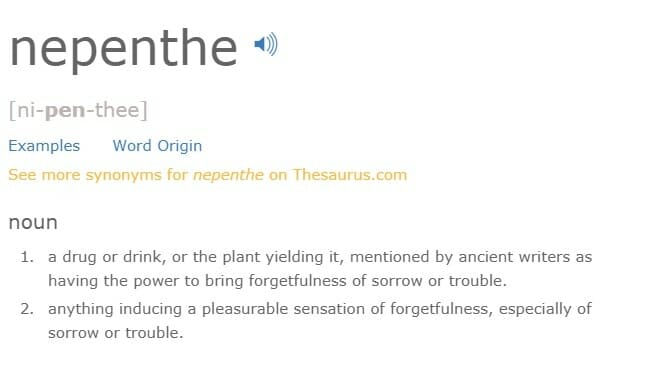[vc_row][vc_column][vc_column_text]
Maybe you have a blog with lots of followers. Or maybe someone’s told you that you write well. Either way, you know you have potential. It’s time to bring it to the next level, and finally make money out of your God-given gift.
Hold up – before venturing into writing as a professional career, here’s some advice from an editor.

“oh, are you having a parade? It would be a shame if something happened to it…”
Make sure you have the basics
First off, like any other professional skill, you need to get your basics right. You need to know the difference between ‘your’ and ‘you’re’, know when to add commas, and know how to use the appropriate tenses.
I say this from experience, after having edited more than a hundred articles from different writers. As a rule, I try to be as inclusive as possible – I want to give every writer a chance.
But that’s come back to bite me in the ass before. We’ve hired writers who didn’t quite have the basics, and, oh my god, editing their work was like being tied up and being forced to listen to a 10-hour loop of Despacito.

“des, pa, ci-” noooo
We’re not talking about a rogue grammatical error – everyone does that, myself included. This writer was consistently bad at everything. There was a mistake in each line, and I had to spend several hours editing their work. It would have been much easier to re-write the article entirely.
Lina Esa, editor of CLEO, agrees.
“First off, you need to know your basics. Literally. You need to know the English language like it’s your #bae or whatever. And you’ll be surprised at how many aspiring writers don’t know how to spell, use the right tense, or proper grammar or syntax. YOU WILL BE SURPRISED.”
Seriously, you will.
You must understand – the people paying for your writing aren’t running a writing class. They’re commercial institutions, which means that every second spent correcting your writing is costing them money. The final cost of your article isn’t just what the company paid you, it’s also how much time they spent editing your work.
If you want someone to pay you for your writing, make sure it’s not costing them extra just to get it right.
Check your ego at the door
I’ve edited articles by writers who were previously writing for so-and-so publication or was editor of this so-and-so magazine. Because of their previous experience, they felt entitled to their writing. They got so defensive over every little edit to their work.
See, bad writing by itself isn’t a problem for me – I can always correct a writer and tell them what their mistakes are and where to improve. But a writer who’s convinced that he/she is the shit? There’s just no talking to that.
In their minds, your criticism is a personal attack. Every correction you make on their work is countered with “Yeah, but…”
It’s exhausting.
Being a professional writer isn’t about being the best – it’s about learning. When money is involved, you’ll usually be working with professionals in the field who know what they’re doing. When they tell you what’s wrong with your writing, chances are they’re right. Learn from it.
Before this, I was one of these egoistic writers too. I had a blog, and I had people commenting that my writing was good. So, when I got one of my first clients, I knew I was going to rock his world.

“did you pack a parachute? ” “neah, i didn’t. I’m just that good. ”
Spoiler alert – I didn’t rock his world. On my first assignment, he commented that my sentences were too long and complex. He said that if he published it, his readers would read the first sentence, get bored, and never come back to the site.
I was crushed, but I didn’t take it personally. I made shorter, simpler sentences, and broke my article into smaller paragraphs. He ended up keeping me, and I’ve been on payroll ever since.
It was only later, after almost a year of running my own content platform, that I realised he was right. As editor of IRL, I can see which articles do better, and it’s typically those with simpler language and shorter paragraphs.
So, when you become a professional writer, don’t bring your ego with you. When someone says your writing sucks, don’t get offended. Try to understand why they say that and improve your craft.
Lina had a similar advice to give.
“Try, practice, refine your craft, and ACCEPT CRITICISM. I started out as a terrible writer. I know that. But it took a lot of practice, slogging, and trying. I was told by lecturers that my English was weak. ENGLISH IS MY FIRST LANGUAGE. But I took the advice, I asked for feedback, how to improve, and spoke privately with my tutors. Read a lot, and NOT BLOGS. Read proper news outlets and publications. Read books.”
Amin, sister!
Become professional by being professional
Here’s one of the biggest differences between the professional and the amateur – accountability. Once someone pays you for your craft, they’re hiring you for a service. It’s your job to deliver what you promised on time.
All the romantic notions of being a writer – waiting for inspiration, creating art, taking your time to produce ‘perfection’ – you’ve got to drop them like it’s hot.

Take it from these famous writers. (source: giphy. Com)
When you become a professional writer, meeting the deadline is the most important thing. A website can’t launch without the copy. A campaign doesn’t run without the tagline. A content platform doesn’t work without articles.
As editor, I can say from experience that a mediocre writer who meets deadlines is much more valuable than a good writer who doesn’t.
I’ve mentioned before, that IRL aims to produce about one article per day. We run a tight schedule, and I need our writers to hand in their work on time. If they miss their deadline, I either have to a) rush an article, or b) replace it with an article from another writer. That in turn messes up their timeline, triggering a chain-reaction of missed deadlines.
Not producing an article is simply not an option. Doing that means our traffic might dip, and advertisers are going to want to know why. “Because our writer(s) were busy that day,” just doesn’t cut it.
That goes for every other commercial institution too. They’re paying you to deliver a good product on time. If there’s any part of that sentence you can’t fulfil, then you’re not a professional.
Write for your readers
Here’s another way I can instantly tell the difference between the amateur and professional writer. The amateur writes for themselves – the professional writes for the audience.
In simpler terms, amateur writers write what they want to write. They couldn’t care less about the audience. Their writing ends up being understandable only to themselves and often ends up being just plain bad.

Much like this movie.
Professionals understand what their work is trying to achieve. For example, a content writer’s job is to entertain readers and pull traffic to their site. To do that, it must first make sense to the audience. They’re always asking, “Will people read this? Would they get it?”
If you’re going to be a professional writer, you’ve got to figure that out too. What’s the point of your writing? What’re you trying to achieve?
Here’s what Lina had to add,
“Think of yourself as a storyteller. You’re the conduit in which you’re telling a story of someone’s life or sending a message through to your reader. You are not writing for your ego.”
Less is more
Professional writing is about communication. Companies pay you to communicate an idea or a message to the intended audience.
In today’s world, you don’t have the luxury of time. There’s about a billion other things trying to compete for your readers’ attention. Chances are, you have a very small window to deliver that message.
Professional writers must be brief. They’ve got to communicate their ideas in as few words as possible. Whether you’re writing a slogan or a script, you’ve got to practice delivering your ideas efficiently.
Online readers are different than traditional novel readers. They skim through a sentence, sucking up useful points and ideas. Writing words like ‘nepenthe’ instead of ‘tequila shots’ just makes your work a bitch to read.

Lina agrees with this too.
“You don’t need a lot of words to put across a point. Don’t use words you don’t know. Be concise — it’s more powerful. And if you’re in the right context, you can even use Insta-speak. It can make your copy buzzy and easier to read. But know your audience, K?”
And that’s it! Five tips on how to be a professional writer from editors. If you’re feeling up to the challenge, why not write for us? We’re always looking for new freelance writers. E-mail your resume to us at ym.efillaerni@lehcar or simply visit our submissions page to submit an article.
For more articles on how to be a writer, read I’ve Just Finished SPM and I Want to Be a Writer in Malaysia – Where Do I Start? Here’s How, and How I Quit My Five-Figure Salary Job To Become A Travel Writer.
[/vc_column_text][/vc_column][/vc_row]
More from Real Skills
How I Saved Almost RM50,000 On Buying My First Car
Here's how this Malaysian man with a RM3,500 salary saved RM50,000 on his first car.
Angry M’sian Boss Demands Unpaid Overtime Over Raya, Causes 9 Staff To Quit
An anonymous employee at a local SME shares how a bad-tempered boss eventually caused 9 staff to quit before Hari …
I Studied In Chinese School As A Malay Boy, Here’s What I Learnt
Every time I used Mandarin outside of school, family members would come up to me at gatherings and ask me …















